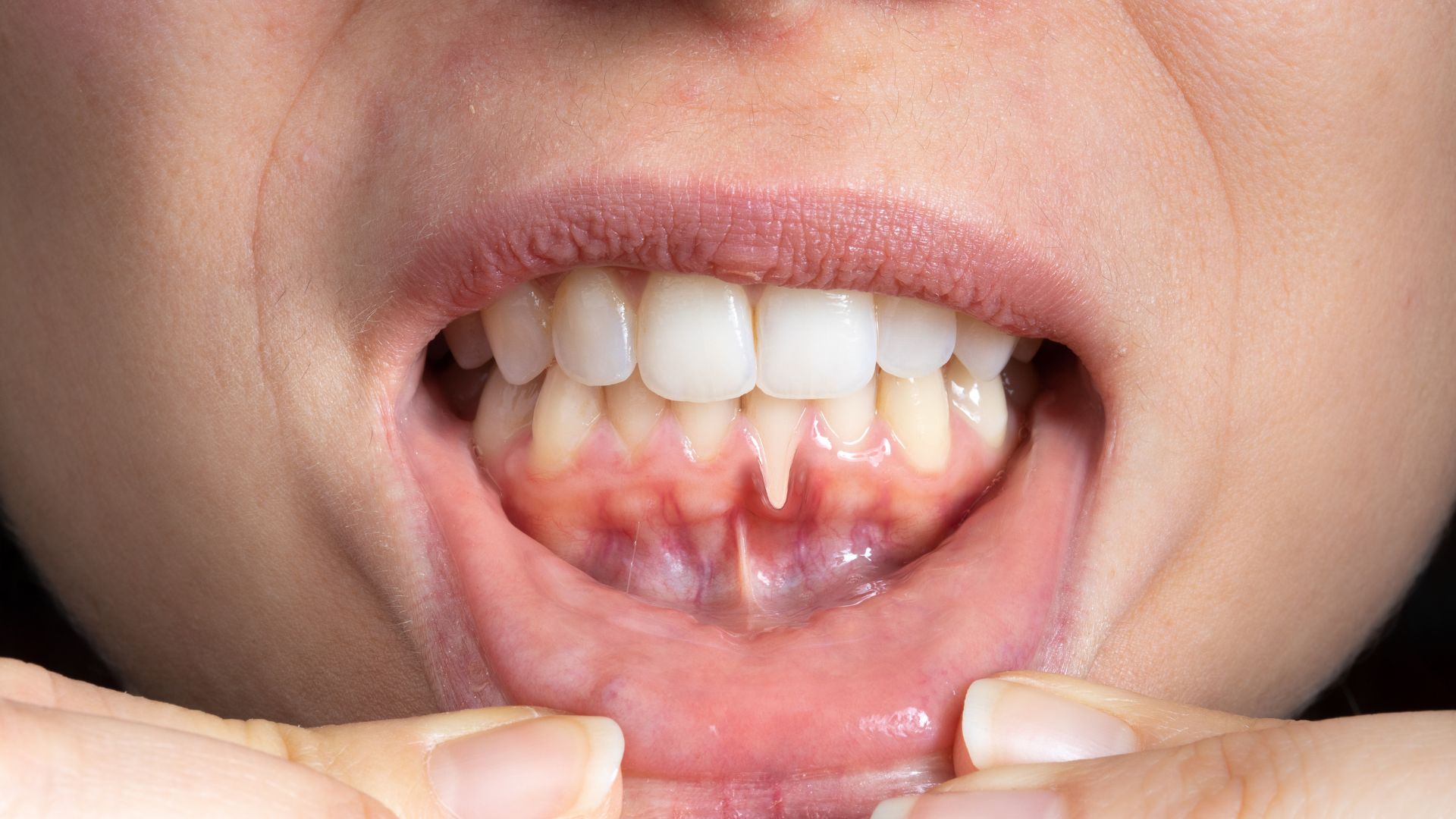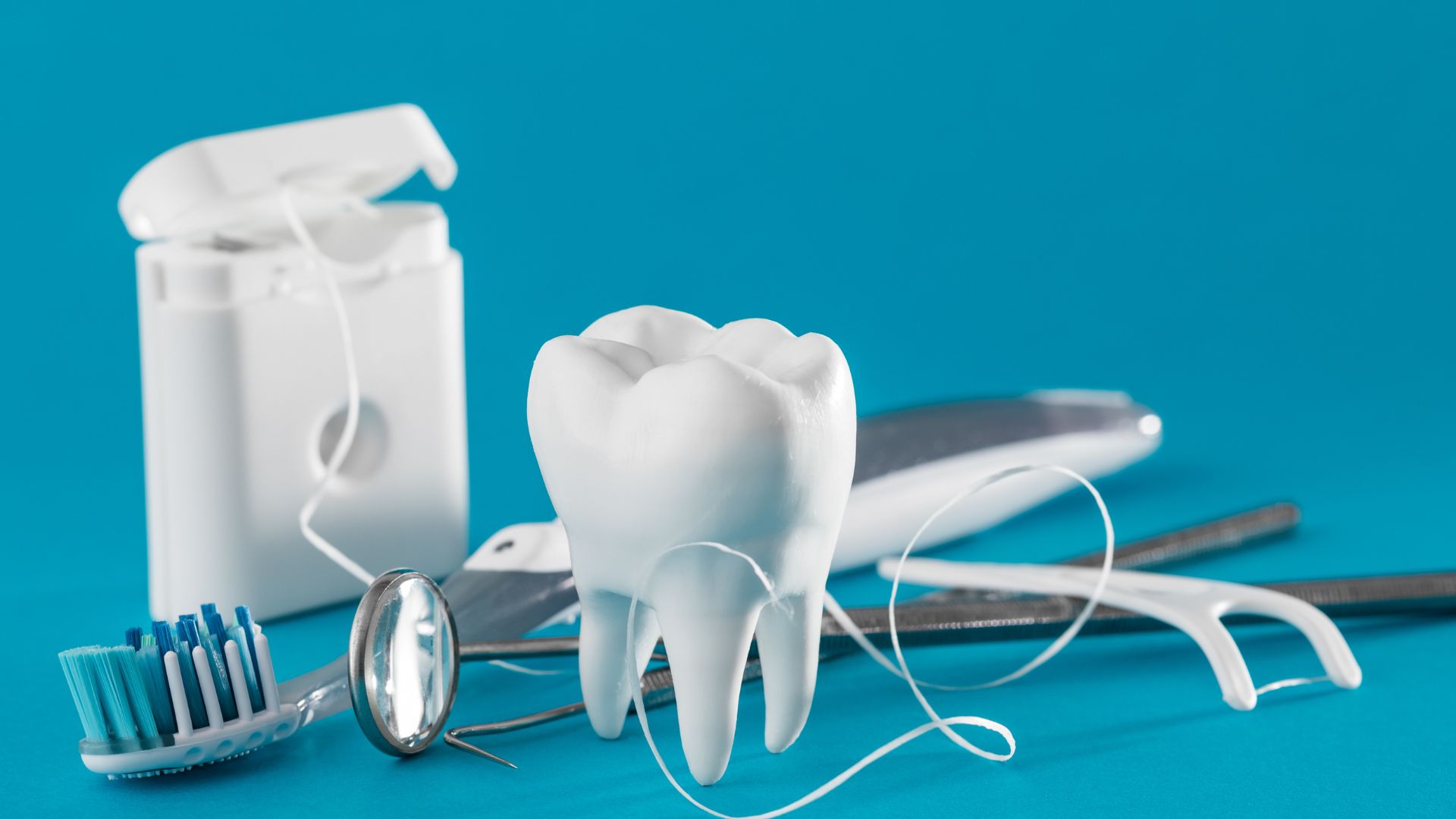We can’t imagine a worse-sounding oral condition than trench mouth. Although it sounds like a case of really bad breath, it’s actually a serious form of gingivitis, causing bleeding gums, pain and swelling, and ulcers or lesions between your teeth. The lesions or ulcers can be quite deep and often fill with debris and plaque. Yuck!
Trench mouth kills gum tissue, and without treatment, it can spread to your lips, cheeks, and eventually your jawbone. Here we explain what trench mouth is, the common symptoms and treatments, and how you can prevent this highly uncomfortable disease.
Table of Contents
What is Trench Mouth?
Trench mouth is an infection in the gums related to gum disease or “gingivitis.” It is linked to your immune system and is a serious condition requiring treatment. Also known as acute necrotizing ulcerative gingivitis (ANUG) and necrotizing ulcerative periodontitis, if allowed to spread, it can cause the following complications:
- Dehydration
- Fatigue
- Weight loss
- Tooth loss
- Increasing pain
- Worsening periodontitis
What Is Trench Mouth Caused By?
Trench mouth is caused by pathological bacteria in your mouth that overpowers your mouth’s good bacteria. When good bacteria are overwhelmed, it leads to infection and the development of painful ulcers. Poor oral hygiene tends to be the main cause of trench mouth, but other issues contribute to the risks, including:
- Stress
- Poor nutrition
- Smoking
- A weak immune system
- Other infections, especially in the throat, teeth, or mouth
Although rare, trench mouth is most common in people between the ages of 15 to 35.
What Are The Symptoms Of Trench Mouth?

Trench mouth symptoms appear suddenly and include:
- Extremely bad, foul-tasting and foul-smelling breath
- Ulcers (sores) on your papillae, the gum area between the teeth
- Fever
- Painful, red, and swollen gums
- Grayish or yellow-white discolouration of the gums
- A grayish film on the gums
- Severe gum bleeding
- Swollen glands in the head and neck
Although having these symptoms may not necessarily mean you have trench mouth, they all indicate you need an immediate assessment by your dentist.
How Do You Get Rid Of Trench Mouth?

The first step to getting rid of trench mouth is to set up an appointment with your dentist as soon as possible. They will assess your mouth and gums and look for tell-tale ulcers between your teeth. They will also inspect your gums to look for signs of gum tissue damage, film, and inflammation. If they suspect the infection is worsening, they will take your temperature and check your head and neck for swollen glands.
In some cases, your dentist will take x-rays to rule out other causes of the infection, and/or to determine if the infection has spread. A throat swab culture also helps confirm you have the disease.
Once your dentist confirms you have trench mouth, they will typically recommend the following treatments:
- Antibiotics to treat severe infection
- Salt-water rinses to help soothe irritated, painful gums
- Hydrogen peroxide rinses to remove dead gum tissue
- Chlorhexidine rinses for gum inflammation
- Over-the-counter pain relievers, lidocaine, or coating agents to reduce pain
Once the infection is treated, you will require a professional cleaning to remove plaque on a regular basis until the gum disease is treated. This often includes specialized deep cleaning treatment below the gumline provided by a periodontist. You’ll also be given instruction on a strict oral hygiene regime to prevent trench mouth and gum disease from returning.
Is Trench Mouth Contagious?
No. Although the sores might feel similar to contagious conditions such as herpes/cold sores, trench mouth is not contagious.
Can You Die From Trench Mouth?
No. Although the infection can spread to your lips and jawbone, you can’t die from trench mouth.
What Is The Prognosis For Trench Mouth Disease?

As long as you follow your dentist’s instructions, you should start feeling better within a few days of starting your treatment. Although some people might feel a little sick to their stomach from the antibiotics, once the course of antibiotics is finished, you will start feeling more like yourself. In severe cases, once your gums begin to heal, you might need gum surgery to remove damaged tissue or to rebuild gum areas that experienced severe gum loss. If bone damage occurs, a flap procedure is required to clean the tooth roots and repair the damaged bone.
What is a flap procedure?
During a flap procedure, a dental surgeon pulls back your gums to smooth and reshape roots to reduce the areas plaque can grow. They then repair the bone by taking a bone graft from another part of your body or using man-made materials. A lining is sometimes placed on the bone graft, which is removed once the bone grows back.
Is It Possible For Trench Mouth Treatment To Fail?
Yes, there can be cases where treatment fails. Common causes for trench mouth not responding to treatment include:
- The antibiotics did not treat the root cause of the infection
- You did not achieve successful removal of dead or diseased tissue with proper hydrogen peroxide rinses
- There is an underlying medical issue preventing treatment from working, such as immune diseases
- You didn’t follow instructions for your complete treatment plan
- You did not improve your oral hygiene regime
Can I Prevent Trench Mouth?

Yes, trench mouth is totally preventable. Although quite rare, it is most common in people with poor general health and lifestyle habits that contribute to risks, such as smoking or being under constant stress. As long as you maintain good general health, follow a healthy diet and exercise routine, and stick to a strict oral hygiene regimen, you can prevent trench mouth.
What is the recommended oral hygiene regimen to prevent trench mouth?
Brushing and flossing thoroughly twice a day along with regular dental checkups is always the best prevention against trench mouth and other oral diseases. It helps to rinse after each meal when recovering from trench mouth to help prevent it from returning. In this case, your saltwater rinses are very important, as they can help soothe sore gums following brushing and flossing.
If you are concerned you might have trench mouth, call today to schedule an appointment at 416-232-2033, or click here to request an appointment.

